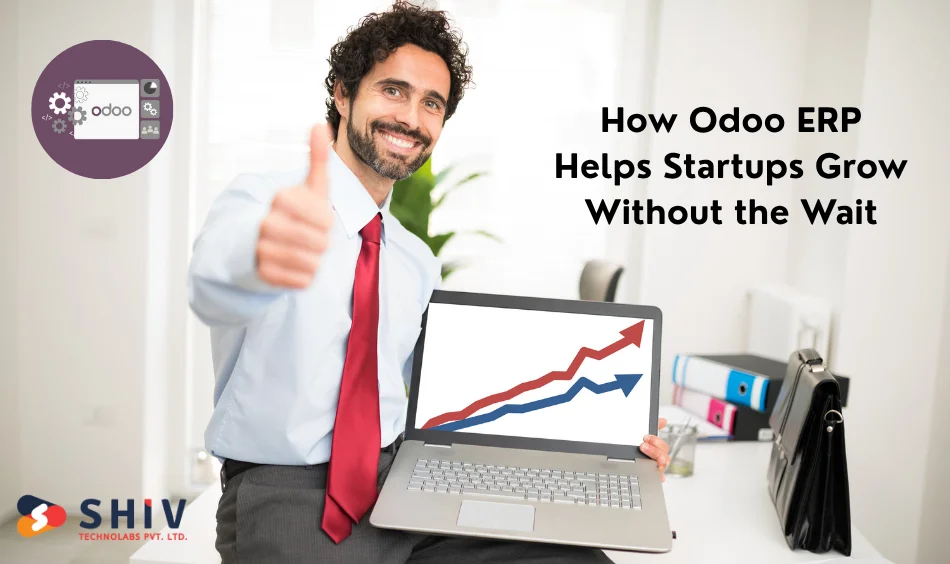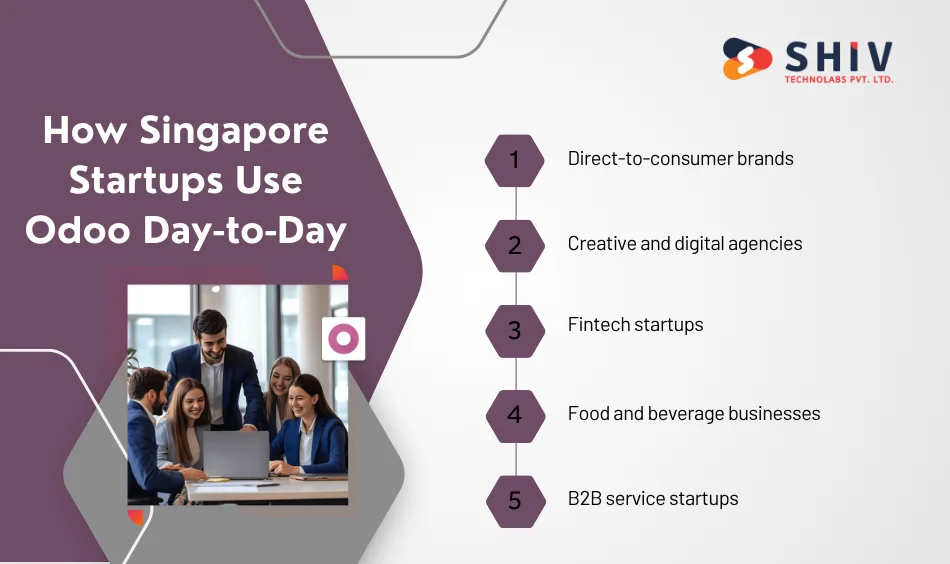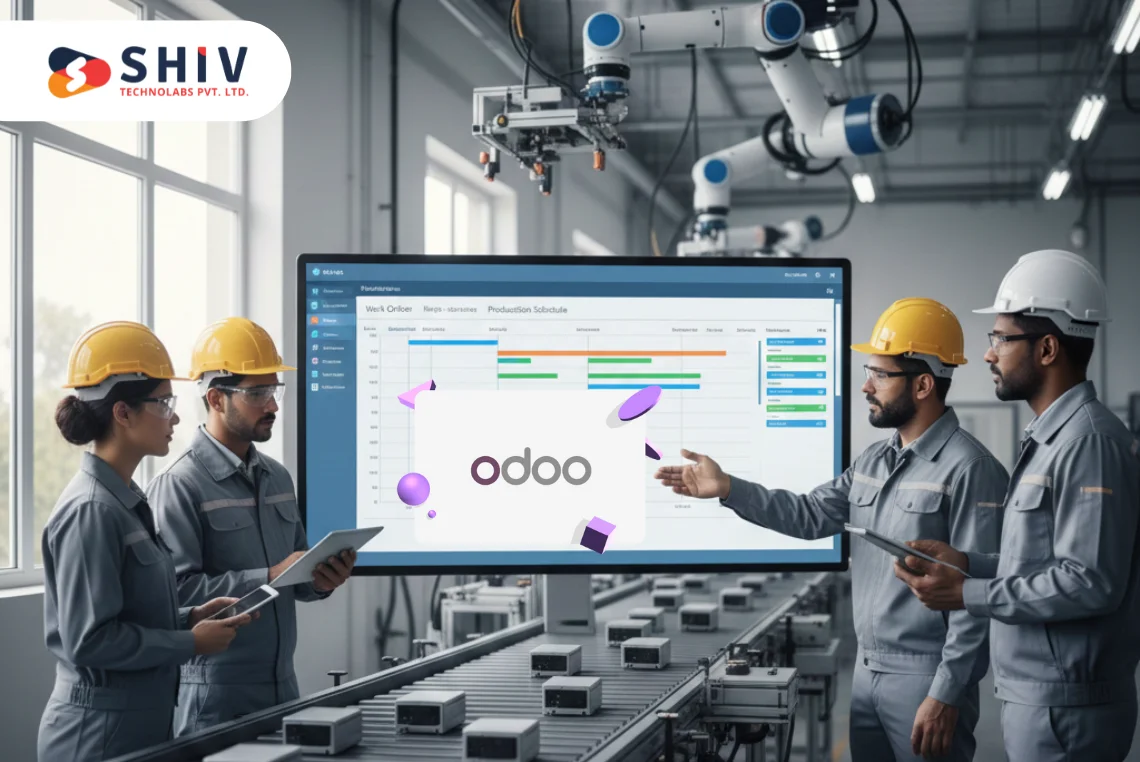Table of Contents
Startups in Singapore face real pressure when choosing an ERP system. Most founders ask one question early: Should we build a custom ERP or pick a ready-made system like Odoo?
Building your own system gives full control. But it also leads to long timelines, rising costs, and complex maintenance. Odoo offers a faster, lower-risk option with flexibility.
In this blog, we’ll break down why Odoo ERP for startups is often a better choice than a custom ERP. You’ll see why it helps Singapore startups grow faster with fewer headaches.
What Makes ERP Systems Crucial for Startups in Singapore?
Startups must act fast, stay lean, and make smart calls. Manual handling of sales, stock, or tasks slows them down.
An ERP system Singapore gives startups a single place to manage everything. It connects daily operations, removes duplicate work, and brings all business data into one dashboard.
Most startup teams are small. They don’t have time for repetitive tasks. With a strong startup ERP software, teams can work faster without hiring more people. That’s why the right ERP can help startups scale much sooner.
The Reality of Building a Custom ERP from Scratch
Building your own ERP sounds appealing. You only build what you need. No extra tools. Just a perfect fit. But the real experience is different, especially for small, early-stage startups.
Let’s break it down:
- Development Time: A custom ERP can take 6–12 months before it’s usable. Startups can’t afford that delay.
- High Costs: You need to hire a development team. The cost often runs into six figures.
- Shifting Needs: Startup processes change fast. Custom ERPs need constant updates to keep up.
- Maintenance Burden: Every update, bug fix, and patch requires internal resources.
Early on, startups are still testing what works. A full custom build forces decisions too soon.
Startups that choose custom ERP development Singapore often find themselves delayed, over budget, and stuck with a tool that’s hard to scale.
How Odoo ERP Helps Startups Grow Without the Wait

Odoo fits how startups grow. You don’t need to set everything up at once. You can start with what matters today and add more later. This modular approach helps startups avoid overwhelm.
Odoo’s setup time is short. Most startups go live in a few weeks. That speed matters when you’re trying to grow fast without large teams.
It’s also cost-friendly. With Odoo, you skip the huge upfront cost of custom builds. You also get support from a global community and vendors offering help at every stage.
That’s why many startups trust Odoo ERP Singapore to build smart, scalable systems without overbuilding too early.
Local Features That Make Odoo Ideal for Singapore Startups
Odoo supports many tools built for local use. This is where it stands out.
It supports Singapore’s GST structure right out of the box. You can also generate IRAS-compliant audit files. That’s a big help when handling local tax reports.
Odoo supports multi-currency setups, great for startups doing cross-border business. You can also connect it to PayNow, POS systems, and eCommerce tools.
Want to host it in the cloud or on your own server? Odoo gives you both options. This flexibility gives startups room to grow.
But it doesn’t stop there. Many Singapore startups run Shopify or WooCommerce stores. Odoo connects with both. It also integrates with tools like Xero, DBS IDEAL, and local courier services via third-party APIs.
You can also automate employee CPF contributions and generate MOM-compliant payroll reports. These features help founders stay compliant without hiring dedicated admin staff.
Startups that use CRM or project tools like Trello or HubSpot can connect those too. With Odoo’s modular system, you’re not locked into a rigid setup.
These features make Odoo ERP implementation Singapore a strong fit for local teams who want full control, without overbuilding or overpaying.
Odoo vs Custom ERP: Side-by-Side Comparison for Startups
Here’s how Odoo ERP for startups compares directly with building your own system:
| Feature | Odoo ERP | Custom ERP |
|---|---|---|
| Setup Time | 2–4 weeks | 4–6+ months |
| Cost | Low initial investment | High upfront development |
| Customization | Modular + code updates | Fully flexible (high cost) |
| Maintenance | Vendor/community support | Needs in-house team |
| Singapore Localization | Built-in support | Must build from scratch |
Startups often start with Odoo and only consider custom builds when they scale.
Why Custom ERP Fits Only a Few Startups
Odoo works well for most early-stage teams. But some startups may still need a custom system, under certain conditions.
If your startup has deep funding and a long runway, building from scratch might work. You’ll need a full-time in-house tech team that understands your process.
Some industries also have niche workflows or compliance rules that Odoo can’t support without heavy custom coding. If that’s the case, a custom ERP may make sense.
But for most startups, Odoo offers enough flexibility without the wait, cost, or tech burden.
Also read: How to Choose the Right Odoo Development Partner in Singapore?
How Singapore Startups Use Odoo Day-to-Day: Real Use Cases

Startups in Singapore use Odoo in practical, time-saving ways across different industries. Here are a few real examples:
- Direct-to-consumer brands
Use Odoo to manage inventory across Shopify and Lazada. They sync stock, process orders, and issue invoices from one place. - Creative and digital agencies
Track project tasks, team hours, and client billing using Odoo’s project and timesheet apps. This keeps admin work low and billing accurate. - Fintech startups
Connect Odoo with DBS or OCBC bank feeds. Handle GST filing, bank reconciliation, and payment tracking without switching tools. - Food and beverage businesses
Run retail POS on Odoo while linking it to kitchen inventory. They track sales and avoid overstocking or running out. - B2B service startups
Use Odoo CRM and invoicing to manage leads, send quotes, and auto-convert signed deals into billable tasks.
Each of these startups runs lean teams. Odoo helps them save hours every week by centralizing daily tasks. No switching between apps. No manual double entry.
This makes Odoo ERP for startups not just an ERP, but a tool that fits real startup habits.
Conclusion: Odoo Lets You Move Fast Without Compromise
Startups in Singapore need speed, clarity, and room to grow. Odoo ERP for startups checks those boxes.
It helps you start small, add features when needed, and keep costs in check. You don’t have to spend months building something from scratch just to manage your daily tasks.
That’s why many Singapore startups go with Odoo first. It gets them moving fast, and they still get room to grow and customize later.
If your team wants real progress instead of waiting on dev cycles, Odoo is a solid choice.
Work with a Trusted Odoo Development Company in Singapore
If you’re ready to launch your startup on a solid operational base, we’re here to help.
Shiv Technolabs is a trusted Odoo development company in Singapore. We offer fast setup, local GST and IRAS compliance, and ongoing support tailored to startups.
Our team knows what early-stage businesses need, and we build Odoo systems that scale with you.























